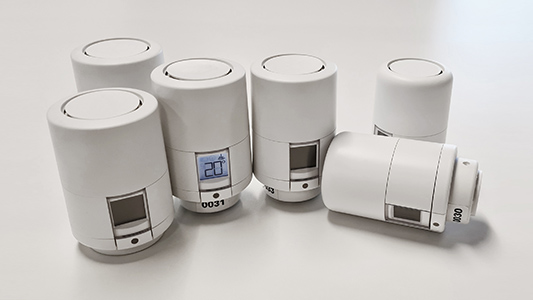Copenhagen – NeoCortec, the experts on wireless connectivity and providers of ultra-low-power bi-directional wireless mesh network hardware and software solutions, demo’d the effectiveness of the company’s NeoMesh wireless mesh networking solution by implementing it in a modified smart thermostatic radiator valve (eTRV) from market leader, Danfoss.
Comments Thomas Steen Halkier, CEO at NeoCortec: “We wanted to prove the performance in a leading networked smart valve, and to show how easily even pre-existing models can switch to NeoMesh, reaping scalability and power-saving benefits.”
Radiator valves present an excellent opportunity to implement smart buildings. By including a sensor and wireless network link within the eTRV, the temperature of a room can be monitored and controlled automatically from a central location. The Ally range of eTRVs from Danfoss uses Zigbee technology to provide networking capability. However, a major limitation of Zigbee is its lack of scalability, so for a multi-family building or office, commercial or other work space, Zigbee is not a practical solution. Zigbee also needs mains power for routing.
By contrast, NeoMesh can scale almost infinitely, and nodes run on two AA batteries for up to 7 years. Installation in a smart building is as simple as positioning the nodes and turning them on. The network self-configures and is suitable for reliable two-way communication.
The team at Neocortec easily stripped the existing Zigbee stack from the transceiver in the Ally eTRV and replaced it with the NeoMesh stack. A trial using multiple modified eTRVs demonstrated how a network could be created with much greater range and lower power than the original units were capable. Halkier: “This small scale demo shows that it is possible to have hundreds or even thousands of Ally eTRVs in the same network. These can be installed in large buildings without need for mains-powered routers.”












